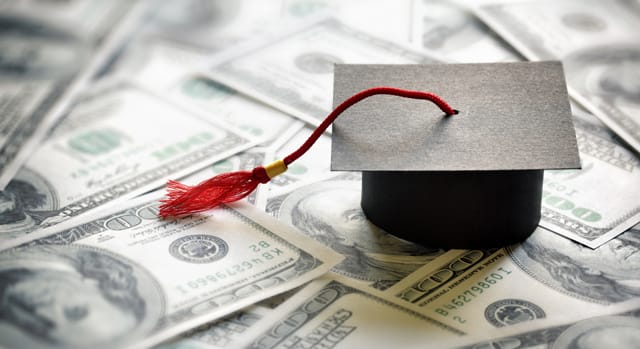Grad School is Expensive Enough. Don’t Forget to Factor in These Additional Costs

If you’re hoping to increase your income over the long term, you may be considering going to grad school. This decision comes with many pros and cons, and grad school expenses vary greatly depending what school you go to, what region of the country it is in, what you choose to study and for how long.
There are the obvious upfront costs of tuition, textbooks, and room and board. But what about the not-so-obvious costs?
Here’s my story and how I learned — the hard way — about the price of furthering my education.
The Back Story
I majored in communications with a minor in marketing for my bachelor’s degree. After graduating in 2011, I decided to specialize in public relations and enrolled in Boston University’s graduate program. I was a part-time student who also worked full time, and it took me three years to complete my master’s degree.
Although I worked throughout college and lived at home after graduating to save money, I was unable to save much during those initial three years in grad school. For a while, I couldn’t figure out why.
Finally, I sat down and crunched the numbers. The problem is, going to grad school is expensive. (I know, that much is obvious, right?)
However, aside from tuition — which added a whopping $65,000 onto my existing student loans from undergrad — I paid almost $15,000 out of pocket for various expenses.
Here’s where I spent my money.
Parking
Because I had to drive to work every day and attend night classes two to three times a week, I had to pay for a parking pass for one of BU’s garages.
I paid $85 for a part-time pass every semester, which worked out to $595 over the course of three years. (I went for seven semesters because I took a summer course one year).
Student Activity Fees
I also paid $70 each semester for a vague “student activity fee,” supposedly to fund various events throughout the year. I never went to these events because after working 40-50 hours, sitting in class for six to nine hours, and spending countless hours tied up in driving, studying, homework and trying to see my family and friends, I never had the time.
Because I didn’t go to any of the student events, I tried multiple times to get out of paying this fee, to no avail. This came out to a total of $420 for six semesters, since you don’t pay in the summer.
Excess Tuition
The biggest out-of-pocket expense was tuition. The federal student loans I took out didn’t cover the full amount, so I had to pay $1,000 at the beginning of every semester for a grand total of $6,000.
Classes
I started a new job one semester and wasn’t sure what my workload would look like. Therefore, I decided to only take one class instead of my usual two.
It turns out this meant my student status technically became “less than part-time,” so I no longer qualified for the federal student loan. My options were to either take out a private loan with sky-high interest rates, or to pay for the entire class upfront. I ended up dipping into my savings account to pay for the $5,500 class.
To graduate on time and make up for the semester I only took one class, I took an accelerated six-week summer course a year later. That class cost $2,400. By that time, I had built up my savings again and once more paid for a course out of pocket. I paid $7,900 for these two classes.
In total, I paid $14,915 out-of-pocket during the three years I was in grad school. These expenses hindered me from being able to make more payments toward my already-existing undergraduate loans — causing them to balloon into the six-figure balance I’m still working on paying down.
Had I known about the additional costs up front, I’m not sure I would have gone through with grad school. However, I do believe it was a worthy investment and will be beneficial in the long term.
That is, of course, once I finish paying off the remaining mountain of student debt!
Your Turn: Are you thinking of going to grad school? If you did go, do you regret the decision?
Kelly Russell is a marketing professional with a goal of saving more and paying off her six-figure student loan debt in five years. She currently resides in Massachusetts.


















